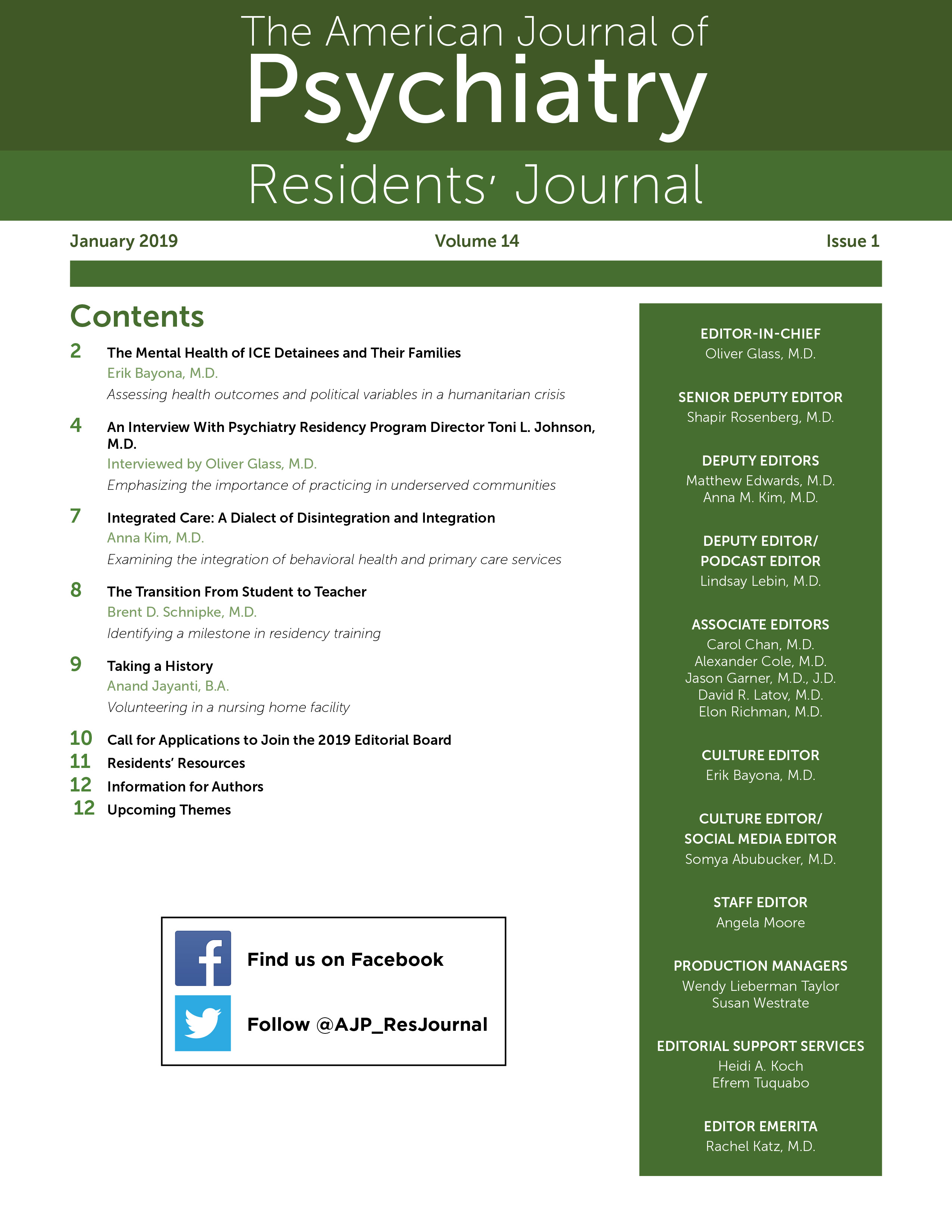In the mid-19th century, the modern-day psychiatrist was referred to as an "alienist." It was the role of the alienist to learn about and care for patients in overcoming their "mental alienation," referring to the mental separation from the self and society (
1). "Mental illness" would be the term used today, more so emphasizing the medical aspect of psychiatric illness.
The medical conceptualization of mental disorders dates back to the late 19th and early 20th centuries. Josef Breuer was a physician and neurologist who discovered the role of the vagus nerve in respiration and likewise wrote of the "talking cure" in his work with patient Anna O. (It was later hypothesized that Anna O was actually experiencing seizures.) Similarly, Jean-Martin Charcot, known for his descriptions of neurological phenomena, such as multiple sclerosis, was the first to describe unconscious physical symptom formation as a result of traumatic experiences (
2). Indeed, the overlap between behavioral health and the medical field is well established. This begs the question: what has caused the separation over time?
Stigma and popular conception of mental illness have certainly played a role (
1,
3). Film has often sensationalized mental illness, as in
One Flew Over the Cuckoo's Nest,
Shutter Island, and
Silence of the Lambs. It is not surprising that chaotic and poorly understood states of mind have evoked fear in populations as well as a need to psychologically (and literally) compartmentalize persons with psychiatric illness in "insane asylums."
Ultimately, these misconceptions could not last. "Deinstitutionalization," a U.S. government policy that moved persons with psychiatric illness from state-run asylums into the community, began in the 1960s to improve treatment and reduce government spending. From this arose the concept of the consultation-liaison psychiatrist, whose role is to collaborate with members of the medical team to address mental health problems in clinics and hospitals. Studies regarding this model have demonstrated effectiveness in quality and outcomes across a range of diagnoses and settings (
3). Movements along these lines have included the 1996 Mental Health Parity Act, the 2008 Mental Health Parity and Addiction Equity Act, and the 2010 Affordable Care Act (
3).
Today, efforts to integrate behavioral health and primary care services are being re-emphasized in the face of growing needs and increasing barriers. More often than not, primary care services have become the gateway to psychiatric services (
4). Importantly, individuals with psychiatric illness may die decades earlier than unaffected persons from untreated and preventable chronic illnesses worsened by poor health habits (
4). Additionally, medications that treat mental illness can have physical side effects. Barriers to treatment involve fragmentation of current payment systems, separate medical records systems, geographically distinct practice settings, and lack of standardized communication between fields (
5).
The overlap between the medical and behavioral fields has been longstanding, and progress has continued. As further research emerges on the biological underpinnings of psychiatric illness, integrated care becomes imperative. Treatment of the individual as a whole begins with society's construction of the mind, body, and spirit—separate while in one frame.
